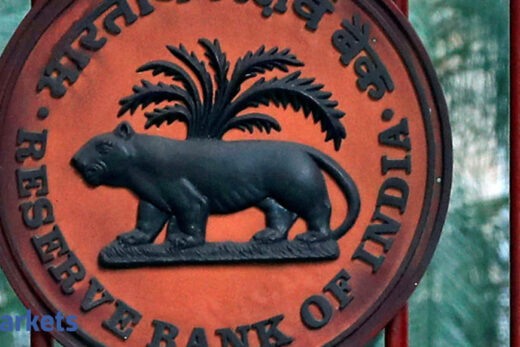If these buoyant collections are a trend to go by, the government should not mind spending more during the year to fuel further growth. And this should form the base of the forthcoming Budget.
Bulk of the prescription on policy side is already in place, mostly by way of measures already announced under the Atmanirbhar Bharat agenda. It is time for the government to focus on its implementation, which of course is easier said than done. Many items require political consensus and managing multiple interest groups. Also, the sheer implementation challenges such as cooperation of the states may take some time. However, the government should take guidance from Chapter 18, verse 48 of the Bhagwat Gita, which
Says one shouldn’t abandon one’s duties in an adverse situation.
सहजं कर्म कौन्तेय सदोषमपि न त्यजेत् |
सर्वारम्भा हि दोषेण धूमेनाग्निरिवावृता: || 48||
(One should not abandon duties born of one’s nature, even if one sees defects in them, O son of Kunti.)
Indeed, all endeavours are veiled by some evil, as fire is by smoke.
Despite the challenges, the government should resolve to focus on rigorous implementation of the police, as that is the right thing to do. Additionally, following measures, mainly involving financial sector reforms, would be most welcome:
PSU bank reforms: The top four public sector banks (PSBs) account for ~75 per cent of the asset size of the 12 PSBs. The overall performance of the bottom eight PSBs remains a significant concern, with an average return on assets at a meagre 0.18 per cent and average return on equity at just 4.57 per cent. Additionally, the cumulative market-cap of the bottom eight PSBs is just ~20 per cent of top four banks by market cap.
Over the past three years, the Government of India has already poured in approximately Rs 3 lakh crore for recapitalisation of the PSBs. With the introduction of new-age technologies in the past decade, and the enormous competition from new-age banks and non-banking finance companies (NBFCs), these smaller PSBs could become a big drag on the exchequer for capital support and for depositor protection.
Given the lower productivity, steep erosion in asset quality and demonstrated un-competitiveness of public sector banks over varying time periods (as evidenced by inferior financial parameters, accelerating stressed assets and declining market share), the recapitalisation of these banks will impose significant fiscal costs. As banking is a strategic sector, the government should retain a controlling stake in the top four PSBs. For the remaining eight, which are much smaller but fiscally risky, the government should consider reducing its ownership and bringing in strong strategic owners. A strategic local or global partner should be invited to put in significant capital in these PSBs and even take a controlling stake.
The strategic buyer should be allowed to buy 51-75 per cent stake in the bank through primary infusion. The requirement of an open offer will have to be waived, as capital will be required to go into the bank. Anyone with deep pocket in India or a strong global financial services player could be allowed to participate in the process, of course, post the fit and proper check. RBI’s proposed recommendations, if implemented, could ensure that there are enough suitors to bring in long-term capital from new sources into these PSBs. The government should retain some stake along with the public shareholders, who could benefit by the stock re-rating due to future efficiencies.
- Corporate bond market: Even though many big-ticket infrastructure projects are now in pipeline, the financing for it remains a challenge as commercial banks are largely staying away from project financing. The corporate bond market could be a solution, provided the bonds are rated AA and above. Towards this, the government may consider setting up a Credit Enhancement Institution which will support the corporate bond market.
- Foreign ownership of insurance companies: To achieve deeper penetration and higher capitalisation of insurance companies, there is a need to increase foreign ownership from 49 per cent to 74 per cent. The cap on FDI at 49 per cent can continue to enable a diversified shareholding of this critical sector. Further, in line with regulations of the other critical sectors, to keep effective control with Indian residents, a SOEC (Substantial ownership and effective control) condition should be applicable. Additionally, RBI should over time restrict the ownership of banks/ NBFCs to reduce the risk exposure and capital requirement of banks/ NBFCs.
- Simplification of delisting guidelines: In order to streamline the entry and exit from capital markets, the current delisting guidelines which require reverse book building for price discovery should be relooked at. This, coupled with a mandatory minority squeeze-out, will make the market globally competitive.
Let us go beyond the traditional areas to create value!
Furthermore, the government should start contemplating a new phase of privatisation. It should take a holistic view of the units, which are not corporatised and in which private sector can bring more efficiency or value. For example, post-offices are struggling as they have not kept pace with the rapid changes in technology.
However, the value of their largest physical network in the country, can still be unlocked through forward integration with a bank or a business correspondent (BC) service. Additionally, involvement of private sector in the local bodies like municipal corporations, township management etc. can bring a lot of efficiency not only in the service quality for the user but will also reduce the burden on the government.
A new asset created by the government through focus on digitisation! The government and its agencies have over the last few years acquired a gold-mine of data with the rollout of initiatives like GST, Aadhar, fastag, e-bills, securities market, banking data with regulators, etc. Management and monetisation of this largest pool of data can be more effective and revenue-generating with private sector partnership – of course, with all relevant data protection covenants. Some of this data may already be getting used by private sector for expanding their business and reach. An adequate framework on right mining and monetisation of this can be invaluable for the government. Given the focus on digitisation, data can be used more productively and generate value for everyone including for government.



